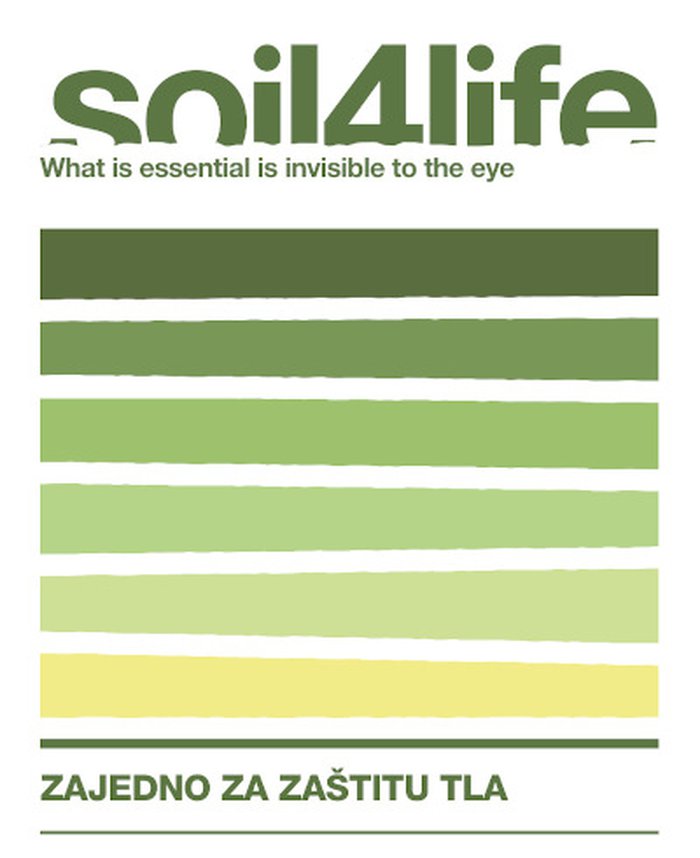The right of access to information has been recognized in democratic countries as “a prerequisite for transparency and accountability of the government that protects citizens from mismanagement and corruption of government” (1). In Croatia, this right is guaranteed by the Constitution, while the Act on the right of access to information regulates how it will be exercised. This law is the only tool that enables Croatian citizens to supervise public authorities, i.e. to access information held by government institutions, if they have not been published. The law thus stipulates that citizens can request information from public authorities through requests for access to information. If they do not receive the requested information, citizens can complain to the Information Commissioner - an independent government body for the protection of the right to access information. Since the Commissioner is the first to protect the right of access to information, it is extremely important that he / she is on the side of the citizens, i.e. that his / her actions ensure consistent implementation and strengthen the application of the Act. Once a public authority does not respect the Law, and the Information Commissioner supports that authority and decides to ensure, not the right of access to information or implementation of the Act, but the "minimum of public interest", the Commissioner becomes an ally of non-transparency. Then the legality of the Commissioner's decisions must be questioned at court.
This was also the case with the decision by which the Commissioner supported the non-transparent practice of the Croatian Bank for Reconstruction and Development (HBOR) and violated the Act to the detriment of Green Istria. With this decision, the Commissioner defended, while at the same time violating of the Act, a bank that is known for its non-transparency and which had at least 37 times unsuccessfully filed law suits at the High Administrative Court against the Commissioner and his legal decisions! (2) By acting in this manner, the one who should defend the right of the public to access the information, put himself in the service of those who want to act non-transparently, while they're at the same time disposing public funds. And that HBOR disposes public money is confirmed by the aforementioned, indeed numerous judgments of the High Administrative Court, but also by those of Supreme Court.
A citizen-financed bank must be transparent
And the judgements say - HBOR is a development and export bank 100% owned by the Republic of Croatia, the Republic of Croatia pays the founders capital of HBOR and guarantees HBOR's liabilities unconditionally, irrevocably and on first call. Funds from the State Budget of the Republic of Croatia are public funds, and citizens, as holders of sovereignty, have the fundamental right "to exercise control over the holders of power and over the spending of public funds". (5) This right "includes the transparency of the work of a state-owned bank ... which is ultimately financed by citizens and legal entities" (3).
HBOR's business is "by its nature a public business and as such aims to perform activities in the interest of a third party, the citizens of the Republic of Croatia, and so that citizens (the public) can have and gain insight into the work of public authorities, including HBOR, its work and the work of its bodies must be public and accessible to the citizens". Transparency of information about disposal of public funds prevents misuse of public funds and ensures that public money is used for the public good, the Commissioner pointed out in her/his numerous decisions in which citizens complained about HBOR's secrecy. (4)
The Commissioner ensured a "minimum of public interest", while anything more than that would lead to legal uncertainty
However, with the disputed decision, the Commissioner decided differently about the request for information that Green Istria sent to HBOR in April 2019. With this request, Green Istria asked, among other things, for copies of the conclusions and documents enacted at the sessions of the HBOR Management Board related to projects supported by HBOR as an export bank and export credit agency of the Republic of Croatia in the period 2015-2018.
As expected, HBOR issued a decision on Green Istria's request declaring the requested information a banking secret and calling Green Istria for abusing the right to access information because of asking for too much information, delivery of which would paralyze HBOR's regular work.
Otherwise, like all other public authorities, HBOR is obliged to proactively publish conclusions and documents enacted at its official sessions. Since the information requested by Green Istria is information on the disposal of public funds, these information must be available to the public. This is written in Articles 10 and 16 of the Act. The court explains that in the case of application of these articles, it is not possible to apply the institute of abuse of rights or to invoke bank secrecy.
However, in his decision, the Commissioner completely ignored these articles of the Act and his own practice, i.e. the basic arguments in the complaint that Green Istria sent to him regarding the problematic HBOR. He has not even taken previous judgments in similar cases as relevant.
He supported HBOR's argument that Green Istria was abusing its right because it asked for a large number of documents, while finding and delivering them would unjustifiably burden the functioning of HBOR and would also be "contrary to the principles of fairness and legal security". He also expressed the position that, in terms of the information requested by Green Istria, the "minimum of public interest" has already been met. Namely, within this long procedure started almost two years ago, the Commissioner issued a decision in which he correctly decided that Green Istria has the right to access information on projects and companies that HBOR supported as an export credit agency of the Republic of Croatia. But not to the copies of conclusions and documents adopted at the sessions of the HBOR's Management Board related to those same projects.
Against this decision of the Commissioner, who, which is scandalous - believes that the implementation of the Right of Access to Information Act (RAIA) leads to legal uncertainty, Green Istria filed a lawsuit in the High Administrative Court. The judgment which has recently been delivered to Green Istria confirmed the Court's position on HBOR, which has been expressed many times, "that control over the use of state budget funds is in the interest of all citizens, who have the right to know about the spending of public funds", while information about "disposal of public funds must be available to everyone". Considering that requested information is related to the disposal of public funds, the abuse of the right of access to information cannot be considered, the Court confirmed, annulled the Commissioner's decision and ordered him to repeat the procedure in which he will decide on Green Istria's appeal in accordance with the Court's legal understanding and remarks. (5)
Even after the High Administrative Court's judgement, the battle for the information on public funds possessed by HBOR continues
Indeed, acting upon the High Administrative Court's judgement, the Commissioner issued a new decision. But, by this decision he returned the case to HBOR so that HBOR would "determine whether there is a restriction on the requested information, i.e. to what extent the provisions of Article 16. paragraph 3. which regulates the disposal of public funds may be applied." (6) Green Istria finds such Commissioner's decision truly disappointing, since the Court has already found that Green Istria, by its information request related to conclusions and documents enacted at HBOR's Management Board sessions, asked for information about disposal of public funds, while no restrictions should be applied, as well as that publication of these information is considered HBOR's obligation derived from Article 10 of the Act on the right of access to information.
Unfortunately, such a decision by the Commissioner opened the doors for HBOR to play its well known, but illegal buying time and delaying game - it has already notified Green Istria about the extension of the deadline for exercising the right of access to information for 15 days, with explanation that Green Istria's request pertains to numerous different information, while the situation requires conducting the Public Interest Test. By acting in this manner HBOR has revoked the same old arguments which lead to the illegal Commissioner's decision and Court's judgement which annulled it in the first place.
As explained in Green Istria's and numerous other High Administrative Court's and Supreme Court's judgements, procedure of the Public Interest Test cannot be applied on requests for information on the disposal of public funds, as the requested information is not classified information. Therefore, Green Istria sent a letter to HBOR to remind it that the procedures it intends to implement cannot be legally applied, and to insist that HBOR finally provides the information that Green Istria has been waiting for a very long time - because of HBOR's illegal behaviour.
RAIA-sinners such as HBOR may be excused from the current obligation to be transparent, according to the Information Commissioner's proposal for the new Croatian Right of Access to Information Act
While the battle for the information and, in essence, respect for human rights, in the heart of democratic Europe continues, amendments and changes of the Croatian Act on the right of access to information are planned in the near future. One of the changes proposed by the Information Commissioner would narrow down the definition of public authorities and their obligations related to publication of information, while the main reason - which would allow the RAIA-sinners such as HBOR to be much more, if not even fully non-transparent in the future - would be the fact that a part of their activities or assets is realized on the market. (7) Thus, the extensively used ECAs non-transparency excuse would thus become carved in the Croatian law.
Croatian civil society, including Green Istria, has risen the red flag (8) about such a proposal, which is, ironically, presented as a part of the Commissioner's initiative to correct the shortcomings observed in the application of the law, and to transpose into the national law the EU Open Data Directive (9), which aims, not to narrow down, but extend "the obligation to publish open data to public companies that were not previously covered" (10).
In his proposal for changes sent to the Ministry of justice and Public Administration, the Commissioner finally concluded that different stakeholders had different opinions on the redefinition of public authority bodies and their obligations related to publication of information, and that "the elaboration of this provision requires significant and more extensive interventions into several provisions of the Law" (11).
For the sake of good governance, democracy and justice, Green Istria invites the Ministry's working group that works on the RAIA draft to abandon further elaboration of such a harmful proposal, with significant potential of degradation of the right of access to information, i.e. human rights in Croatia. Enabling HBOR and the like to become "forts of opacity" would inevitably make the public sector prone to corruption.
1) Ofak, L., The right of access to information as a right protected by the European Convention and other international human rights treaties, Proceedings of the Faculty of Law, University of Rijeka (1991) v. 37, no. 2, 921-951 (2016), p. 922.
2) https://tom.pristupinfo.hr
3) E.g. judgment of the Supreme Court of the Republic of Croatia U-zpz 6/2016-7 or U-zpz 6/2018-8
4) E.g. decisions of the Information Commissioner: https://tom.pristupinfo.hr/pregledfilter1.php?izb=195; https://tom.pristupinfo.hr/pregledfilter1.php?izb=921
5) Judgment of the High Administrative Court which is the result of Green Istria's lawsuit against Information Commissioner's decision, Business number: UsII-215/20-6 as of 15 December 2020.
6) Decision of the Information Commissioner as the result of the High Administrative Court's Judgement, as of 19th Februrary 2021
7) Summary of the Annual Report on the Implementation of the Act on the Right of Access to Information for 2019, p. 23: https://www.pristupinfo.hr/wp-content/uploads/2020/05/IC-Annual-Report-2019-Summary.docx?x58018
8) Different stakeholders, including Green Istria's, Gong's and opinions on the proposed changes of the Act on the right of access to information collected by the Information Commissioner: https://pristupinfo.hr/wp-content/uploads/2021/02/Misljenja-dionika-o-izmjenama-i-dopunama-Zakona-o-pravu-na-pristup-informacijama.docx?x58018, and the Commissioner's proposal on the Act's changes delivered to the Ministry of Justice and Public Administration: https://pristupinfo.hr/wp-content/uploads/2021/02/Prijedlog-Povjerenika-za-izmjene-i-dopune-Zakona-o-pravu-na-pristup-informacijama.docx?x58018 . Both available here: https://pristupinfo.hr/noveliranje-zppi-ja-misljenja-dionika-rasprave-iz-2020-i-prijedlog-povjerenika/
9) About the Directive (EU) 2019/1024 of the European Parliament and of the Council on open data and the re-use of public sector information: https://ec.europa.eu/digital-single-market/en/european-legislation-reuse-public-sector-information
10) https://www.gong.hr/hr/dobra-vladavina/pristup-informacijama/drzavne-tvrtke-zakljucavaju-informacije-pod-okrilj/; https://www.gong.hr/hr/dobra-vladavina/pristup-informacijama/pravo-na-pristup-informacijama-bez-iznimki/
11) https://pristupinfo.hr/wp-content/uploads/2021/02/Prijedlog-Povjerenika-za-izmjene-i-dopune-Zakona-o-pravu-na-pristup-informacijama.docx?x58018, p. 9



